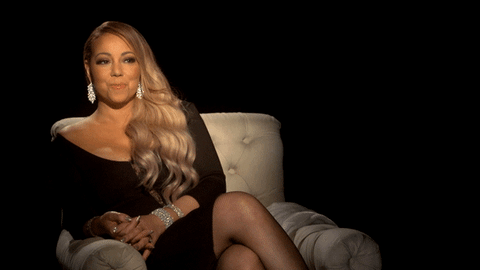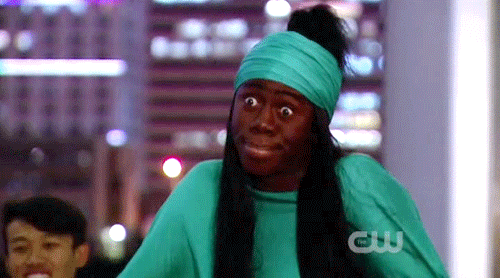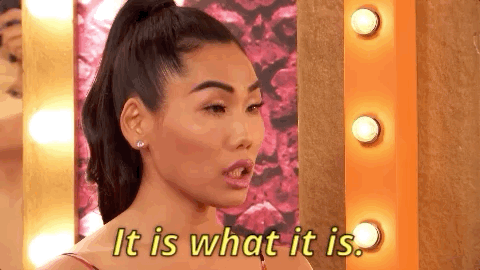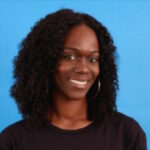
Conversations surrounding the use of the N-word, who can say it and who cannot, are happening again in the beauty community — however redundant they may be.
Beauty influencer James Charles was previously dragged for singing the N-word in a YouTube video. Additionally, influencers such as Jeffree Star, Manny MUA, Laura Lee, Gabriel Zamora, Kat Von D, Kathleen Lights, and more have all been accused of racism in one way or another.
The latest culprit is makeup artist Paige Louise (better known as P. Louise), who rose to fame thanks to her eye shadow methods and her famous collection of eye shadow bases. The makeup artist recently attended a Drake concert, where she recorded herself rapping the N-word during the show.
The entire beauty community seems to be up in arms, with many people split on whether or not she should be able to sing the word if it's included in a song — and whether or not this means that she is a "racist."
Everything was all good just before the Drake concert.
"Drake box tonight with my people," Louise captioned a photo of her concert look.
Unfortunately, a fun night out at a rap concert with friends resulted in a social media disaster. The makeup artist uploaded a video of herself rapping to "Started From the Bottom." She can be clearly heard using the N-word that is in the song lyrics.
The video was part of her Instagram Stories, which went away after 24 hours.
But because nothing on the internet is ever really deleted, the video ended up being downloaded and shared. Fans immediately began calling Louise out for not skipping the N-word in the lyrics. Some dubbed her a flat-out racist, while others simply vowed not to support her anymore.
Fans don't think her use of the N-word aligns with her message of inclusivity.
"Imagine P. Louise being all about inclusion and creating makeup for every skin color, then dropping the N-word on her story. Ur canceled hun," a fan wrote.
Lots of people are reminding the world that the N-word is no longer for white people to use.
"Attention, if you are white, [then] you cannot say the N-word. I repeat, you CANNOT say the N-word. Periodt," a fan shared online.
Some beauty fans are just glad they never bought P. Louise products to begin with.
"I'm glad I was too broke to buy any P. Louise products," one person tweeted.
P. Louise defended herself in a now-deleted tweet.
In her initial statements, P. Louise rejected the accusations about being a racist and iterated that she was merely singing along to song lyrics.
"I’m a racist now for singing along to the words of a song… whilst in the presence of black friends… whilst dating a black guy," Louise wrote on Twitter. "Honestly please don’t come at me like I’ve ever been racist. Myself and the 9,000 people who attended the concert singing to the song must be racist.”
Now is the time to clarify: Having black friends and a black boyfriend does not automatically mean you aren't a racist.

Stay with me here. I'm not concluding that Louise is a racist. Instead, I'm pointing out that when these situations happen, people who are called out for saying the N-word may want to avoid drafting up a list of all the black people they know; it proves nothing.
It's actually very possible to be a white person who surrounds themselves by black people and still ultimately consider black people to be an inferior group. That's complex, irrational, and stupid — but it's also a fact.
To make things even simpler: Yes, people hang out with people they don't really like all the time. Thus, throwing up the fact that you date and hang out with black people isn't the best defense. Your association with black people should never be used as a "proof I'm not racist" cover.
Your black "friends" should actually be schooling you on this.
It's also important to note that just because the black people in your circle have given you the OK to say the N-word around them doesn't mean it shouldn't be a problem for others.

Your black "friends" should be schooling you about this part as well. If they have approved your use of the N-word, then that is the business of your social circle.
That still doesn't mean that other people will not have a problem with your use of the N-word. You already know the negative reactions that people could have when they hear you, a white person, saying the N-word. Therefore, it would be wise to reserve your freedoms with the word for when you are around your consenting friends only.
When that behavior becomes public, you have to just deal with the ramifications of it. Freedom of speech has a price. That's what you sign up for when you accept that pass from your black "friends."
By the way, if you're wondering why I keep putting "friends" in quotes, it's because no real friend would give you the OK to say a word they know could have such a negative impact without also making sure you're aware that they cannot always control what happens if you say it around the wrong person or people.
Furthermore, it is no one's place to say whether or not any black person has the right to be offended by a white person using the N-word in any capacity.

The responses to this debacle with P. Louise have actually said more about the stance many white people still take on the N-word.
It doesn't matter if Louise was "just singing the lyrics" or that "black people use it themselves." The bottom line is that white people (historically and presently the oppressive group) do not get to decide how black people (historically and presently the oppressed group) get to use or feel about the N-word.
Lots of black people are not OK with white people using it. Period. This one word is something that white people typically are not welcomed to say no matter what the intent is. If not saying one word is going to make or break you, then evaluate why exactly you crave the right to say it so badly.
Louise ultimately deleted her original defense and tweeted out a more detailed apology.
"Firstly, let me apologize a thousand times," she wrote on Twitter.
"I’d just like to acknowledge the current situation regarding myself at the Drake concert. I understand I’m a public figure and you guys, of course, expect more from me as an influencer, a brand, and of course a human being."
She wanted to inform her fans that she never meant to hurt anyone by singing the N-word portion of the Drake song.
"I’d firstly like to mention that at no point did I ever intend to offend or hurt anyone or use the word in a derogatory manner. I may sound uneducated at this point but I genuinely was in the moment and my intentions were only to sing the lyrics from a song of a musician who I respect and idolize."
The makeup artist stressed that she was caught up in the moment and the fun of the event.
"I was surrounded by thousands of people also doing the same as myself, thus finding myself lost in the moment of a surreal event," she explained. "At no point do I want to demean the context of what this word represents, and I would never condone anyone using this word."
Louise also seems to respect that some people may be canceling her permanently.
"I don’t expect forgiveness from people who have looked up to me," she wrote. "I don’t expect people to even continue supporting my brand but please understand my heart is pure and I would never intentionally hurt anybody."
Ultimately, it seems that Louise made a mistake and meant no ill intent.
I can honestly see how someone of any race could be rapping along to a song they've heard a million times and accidentally rap the N-word that's in the lyrics. It's no different than accidentally saying the curse word in a rap song if you typically would skip over it.
That said, the way to handle what happens after these slip-ups become public is what actually tells the tale about how responsible you are. Leave out all the excuses about having black friends, own up to the incident, respect that people will feel how they feel about what happened, and then — as Louise promised — let your positive actions going forward speak louder than your past mistakes.




